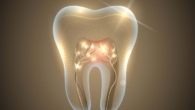
What does frequent belching mean and what to do about it
0
Usually it's not scary, but in some cases you will have to see a doctor.
Any person can belch. It appears due to an excess of gases or air in the stomach. As a rule, this happens due to lifestyle or diet, but sometimes frequent belching is a sign of pathology.
You are in a hurry when eating
If a person eats or drinks too quickly, and at the same time talks, it is very likely that he will swallow a lot of air. Therefore, belching will bother you often.
What to do
Eat and drink slowly. Try to sit at the table and not go somewhere. Conversations are also better left for later.
You eat certain foods
When a person drinks soda or beer, a lot of gas enters the stomach. And when chewing gum or dissolving lollipops, you have to swallow saliva often. Therefore, more air enters.
What to do
You need to eat less lollipops and not drink carbonated drinks.
You smoke
When smoking, a person inhales tobacco smoke and swallows air along with it.
What to do
Find a method that will help you quit smoking.
You have improperly selected dentures
If the doctor made a mistake with the shape or size of the prosthesis, a person may swallow more air while eating.
What to do
Contact your dentist to check the quality of the dentures and adjust them if necessary.
You have reflux disease
This is the name of the disease in which the opening between the esophagus and the stomach (sphincter) closes completely. Therefore, during the digestion of food, it is partially thrown up, and a lot of gas comes out with it. In addition to belching, a person is disturbed by:
- a feeling that food is stuck in the chest;
- heartburn;
- nausea after eating;
- cough;
- difficulty swallowing;
- hiccups;
- hoarse voice;
- sore throat.
What to do
If the listed symptoms appear, you need to go to a therapist or gastroenterologist. The doctor will conduct an examination and prescribe treatment. It can be:
- Diet. People with reflux disease are not recommended to eat fried, fatty, chocolate, garlic, onions, drink alcohol and caffeinated beverages.
- Change of lifestyle.Experts advise to quit smoking, sleep with the head of the bed raised and not to wear tight clothes so as not to interfere with digestion. And those who are overweight are encouraged to lose weight.
- Medications. Medicines are used that neutralize acid in the stomach, reduce its production, or help the sphincter contract better.
- Operation. If medication does not work, surgery is needed to reduce the size of the sphincter or improve its function.
You have other stomach diseases
Burping may occur in people with gastritis, stomach ulcers or Helicobacter pylori infection.
What to do
For frequent abdominal pain, indigestion and nausea, you should consult a therapist or gastroenterologist. After the examination, the doctor will prescribe treatment. These are usually:
- Diet. It helps reduce pain and irritation in the stomach.
- Medicine. Drugs that reduce acidity and improve food digestion are used. And helicobacter infection requires two different antibiotics.
- Operation. It is performed for a stomach ulcer if medicine does not help.
You have a diaphragmatic hernia
The esophagus passes from the chest to the stomach through an opening in the diaphragm . With a hernia, the upper part of the abdomen can press on it. This leads to belching and other unpleasant symptoms:
- heartburn;
- abdominal pain;
- difficulty swallowing;
- feeling a full stomach immediately after starting to eat;
- vomiting blood or black stool.
What to do
With with such symptoms, you should go to a therapist or gastroenterologist. If the diagnosis is confirmed, the doctor will prescribe medication to reduce acidity and pain in the stomach, improve the peristalsis of the stomach. In severe cases, an operation may be required, during which the organs will be returned to their normal position, and the opening in the diaphragm will be sewn up a little or the shape of the esophageal sphincter will be restored.









Leave a Reply